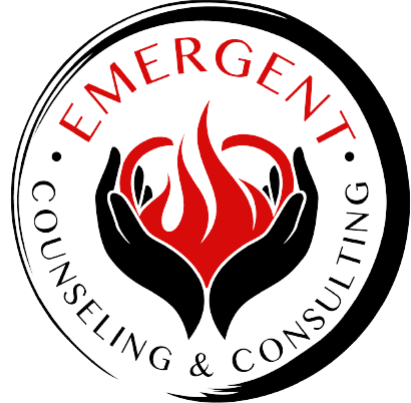How NOT to be the Grinch on Christmas

The holiday season has officially begun! Growing up, the food, music, presents, and twinkling lights that typically accompany the holidays enchanted me. As I grew older, I was devastated to learn that the holiday season featured more than just hot cocoa and Mariah Carey; stressors such as family conflict, strained finances, social exhaustion, and unrealistic expectations are all too common during the holidays. Though often regarded as the ‘most wonderful time of the year, the holiday season can also be the most stressful. From countless social events and family gatherings to fast-approaching work or school deadlines, pressures seem to build from all around as the year ends. Unchecked stress accumulated during the holiday season can drain your mental health and leave you feeling drained and uninspired as you enter the new year, so it’s crucial to stay ahead of it.
Key Points:
The holidays, though highly appreciated, can be a very stressful time of the year.
Several different factors can cause increased stress and anxiety during the holiday season.
Maintaining control over holiday stress can protect your mental health and prevent you from feeling worn out as the New Year approaches.
What Is Holiday Stress?
Holiday Stress usually starts around November and lasts until shortly after New Year’s. It is important to note that holiday stress and Seasonal Affective Disorder (SAD) are different, and you should avoid self-diagnosis. If you are experiencing prolonged anxiety or overwhelming stress beyond the holiday season, reach out to a mental health care provider to determine if your symptoms may be reflective of SAD or another more serious condition.
What Causes Holiday Stress?
Everyone has a different relationship with the holidays; therefore, we each have different causes for holiday stress. For some people, nostalgia drives overwhelming expectations and perfectionism. These expectations can result in overspending, over-commitment, and feelings of dissatisfaction. For others, the holidays may be a reminder of loved ones lost and inspire loneliness. If you travel for thanksgiving, your typical routines may be significantly disrupted, causing you to feel “off.” The increased social interaction required for holiday dinners and events can also be very jarring, especially in the wake of the Covid-19 outbreak.
Four Tips to Manage Holiday Stress
Clearly, the holiday season can be challenging for any number of reasons, so you must be prepared to face it head-on. Fortunately, there are several things you can do to help manage stress during the holidays.
Here are four tips to help you manage holiday stress:
1. Set Boundaries
The first and perhaps most important tip is to set boundaries. Pinpoint your stressors and work to minimize them. Do not force yourself to stay in uncomfortable situations for anyone else’s sake; your first responsibility is to yourself! It is okay to decline an invitation or opt-out of hosting this year’s festivities. If you’re an introvert or uncomfortable with prolonged social interaction, you may want to set arrival and departure times for social events. You can also limit your social media exposure to prevent unrealistic expectations. Social media is a great tool to connect with friends and family long distance, but it is not the whole truth and should never be used as a benchmark.
2. Practice Self-Compassion
Be compassionate with yourself. It’s been a long year, and you should be proud you’ve made it this far. Self-Care is a great way to practice self-compassion. Whether taking a hot bath or getting a pedicure, you should do something to pamper yourself. Amid all the planning and celebrations, don’t forget to take a minute to show yourself some appreciation. You deserve it!
3. Make a Game Plan
One great way to ensure you enjoy this holiday season to the best of your ability is to make a plan and stick to it! It is entirely normal to desire some level of control over your holiday festivities. While you cannot control everything, you can do your best to prepare for the holidays by setting achievable goals. Goal setting is a great way to focus and manage your holiday expectations. You can make itineraries, budgets, and/or to-do lists. You can also practice responses to questions you undoubtedly anticipate from distant family or old friends. For some people, having an established game plan can alleviate a lot of the pressure surrounding the holidays, so give it a try this year and be sure to include room for adjustments!
4. Find a Release
Stress is inevitable and can actually motivate us in healthy amounts. The goal is not to eradicate stress but to maintain a healthy level. However, the additional stress associated with the holiday season can be detrimental without some form of release. When you feel your stress levels rising, you can use coping strategies like exercise, yoga, journaling, and nature walks to alleviate symptoms of holiday stress. You can also vent to a friend, family member, or therapist.
Dealing with holiday stress can be challenging, but it doesn’t have to be detrimental to your mental health, and you don’t have to do it alone. With these tips, you can learn to enjoy your holidays without compromising your mental and emotional well-being.
Happy Holiday!
We’re glad you found us, thank you for stopping by!
We would love to answer your questions! Simply fill out the contact form below and we will be in touch with you soon.
We’re looking forward to being your healing partner!
Looking for different healing services
Our services are tailored to meet your needs and help you develop the skills needed to get rid of anxiety and depression, and enhance your quality of life. Our methods are non-invasive, short-term evidenced-based techniques such as Brainspotting, and Emotional Freedom Technique (EFT Tapping), which simple and focused on reducing the intensity of distress associated with anxiety and depression.

